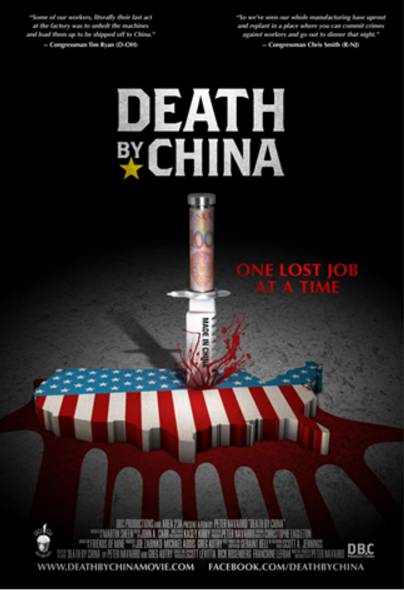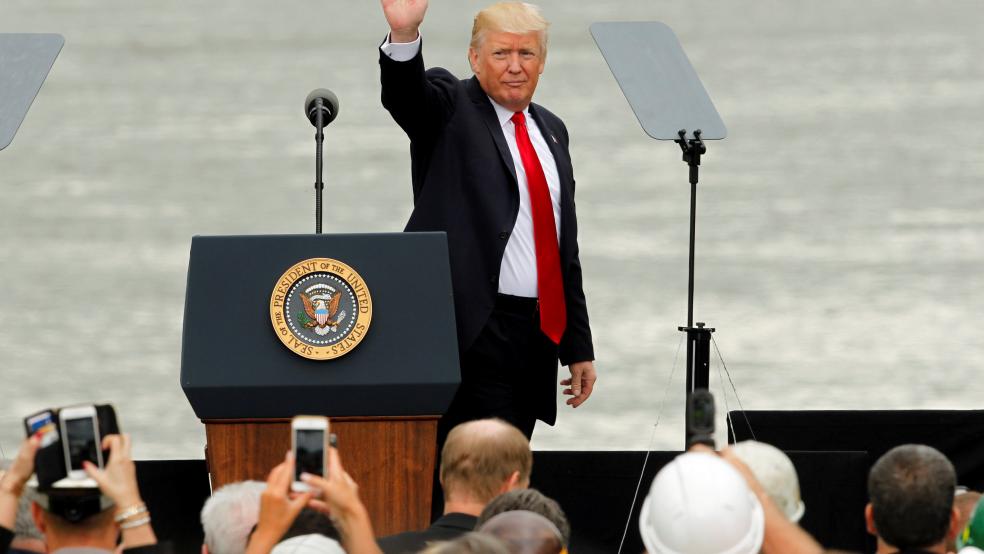President-elect Donald Trump plans to create a National Trade Council within the White House, to be run by economist Peter Navarro of the University of California at Irvine.
The elevation of trade policy to the same heights as the National Security Council in the White House hierarchy appears to demonstrate Trump’s seriousness about focusing on an overhaul of the systems under which goods flow into and out of the U.S.
In a statement, the transition team said that the National Trade Council would work “collaboratively and synergistically with the National Security Council, the National Economic Council, and the Domestic Policy Council to fulfill the President’s vision of peace and prosperity through military and economic strength” and would “think strategically about the health of America’s defense industrial base and the role of trade and manufacturing in national security.”
Related: Trump's Incredibly Wealthy Cabinet: Here's How Much They're Worth
Further, the NTC will “advise the president on innovative strategies in trade negotiations, coordinate with other agencies to assess U.S. manufacturing capabilities and the defense industrial base, and help match unemployed American workers with new opportunities in the skilled manufacturing sector.” It will also oversee Trump’s promised effort to focus federal procurement dollars on U.S. companies.
The nomination of Navarro to oversee that effort is likely to cause a lot of heartburn among conservative economists. While his qualifications, including a Harvard Ph.D., are impeccable, Navarro is definitely an outlier among his fellow economists when it comes to the impact trade policy has on the economy. Like Trump, he appears to relish confrontation on trade issues, which will raise concerns about the possibility of damaging trade wars during a Trump administration.
Particularly on the question of trade policy with respect to China, Navarro is a hawk’s hawk. His 2011 book, Death by China: One Job at a Time, was turned into a documentary film. A lurid poster advertising the film showed a knife inscribed “Made in China” plunged into a flag-draped United States of America with blood pouring out of it.
 Related: There Are Still Some Big Holes in Trump’s Plan for Economic Growth
Related: There Are Still Some Big Holes in Trump’s Plan for Economic Growth
In September, Navarro and private equity investor Wilbur Ross, Trump’s pick for commerce secretary, released a white paper defending the candidate’s economic proposals. At the heart of their argument was the assurance that Trump’s plans for a massive tax cut wouldn’t harm the federal budget because of offsetting gains from his trade policy.
“In considering how to score these competing plans fiscally, it is important to note that the Trump plan generates positive and substantial tax revenue offsets from its synergistic suite of trade, regulatory, and energy policy reforms,” they wrote. “Any analysis that scores the Trump tax cuts in isolation is incomplete and highly misleading.”
In their analysis, they argued that the gains from trade could be expected to add $1.74 trillion in additional tax revenue to the U.S. Treasury over the space of 10 years.
Economists -- particularly conservative economists with a free trade bent -- were incredulous.
Related: Trump’s $1Trillion Infrastructure Plan Raises a Red Flag
An economist from the Tax Foundation called it “nonsense.” Another from the Cato Institute tweeted out the hashtag #WeAreAllDoomed. A conservative Canadian financial columnist warned a colleague not to even try reading it, predicting, “you will poke your eyes out with hot spikes.”
Many economists were troubled by the paper’s apparent assertion that simply by exporting more and importing less, the U.S. GDP would grow dramatically. Experts said that prediction flies in the face of basic economic theory about what contributes to GDP growth.
The paper also advocated a far more confrontational approach to dealing with international partners such as the World Trade Organization, threatening to pull out of the organization entirely unless U.S. goods receive more favorable treatment.
“Donald Trump understands that the only way to correct this unfair tax treatment is for the US to use its status as the world’s largest economy, the world’s largest consumer, and the world’s largest importer to put pressure on the WTO to change this unequal treatment,” Navarro and Ross write. “Without the US as a member, there would not be much purpose to the WTO, but prior occupants in the White House have been unwilling to lead on this issue despite its significant negative impacts.”
Related: Trump Proposes $1 Trillion for Infrastructure Without Raising Taxes
Again, trade economists were stunned at this proposal, which one described as “playing chicken with the WTO.” They argued that the idea that the U.S. could strong-arm the WTO -- a body where all decisions must be unanimous -- is fanciful.
But it’s precisely the willingness to ignore conventional thinking about trade policy that makes Navarro so attractive to Trump.
The transition team release noted, “Navarro has been instrumental in challenging the prevailing Washington orthodoxy on so-called free trade.”
A statement attributed directly to Trump said, “I read one of Peter’s books on America’s trade problems years ago and was impressed by the clarity of his arguments and thoroughness of his research. He has presciently documented the harms inflicted by globalism on American workers, and laid out a path forward to restore our middle class. He will fulfill an essential role in my administration as a trade advisor."
Also in a prepared statement, Navarro said, “I am deeply honored for the opportunity to serve the President-elect and this nation and to advise on policies to rebalance our trade, rebuild our industrial base, and restore America’s comprehensive national power by making America great again.”





